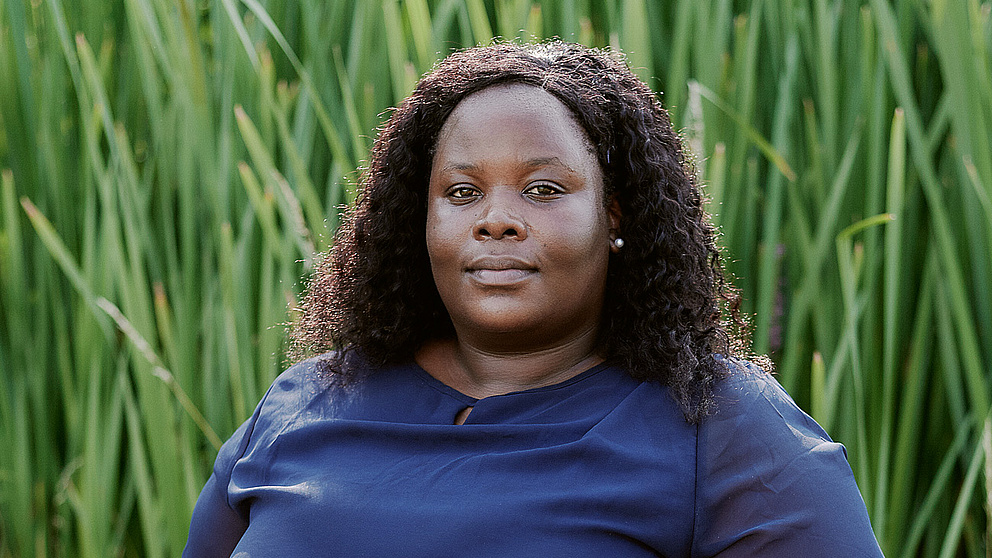Jump to the content
- {{#headlines}}
- {{title}} {{/headlines}}

Climate Protection Fellowship
Chandapiwa Molefe is a fellow of the International Climate Protection Fellowship – a programme for prospective leaders and postdocs with climate expertise who want to realise a 12–24-month project in Germany.
Fellows need an academic host in Germany. A host can be anyone who works at a public or private institution in Germany like universities, NGOs or other companies. Chandapiwa Molefe is being hosted in Berlin by the international organisation PlanAdapt.
In Botswana, it is usually women who are small farmers cultivating crops. Although climate change directly threatens their existence, policies have barely focussed on women and their point of view so far. Molefe wants to change all that. “Women are the backbone of the nation,” she says and quotes the African proverb, “Mosadi ke thari ya Sechaba.” She is working on recommendations for action that are designed to serve as practical guidelines for political decision-makers in Botswana. The aim is to integrate gender perspectives into the country’s climate adaptation strategies. In this way, she wants to ensure that women have access to technologies, knowledge and microfinancing.
Molefe suggests, for example, a gender-sensitive distribution of positions in government ministries and that women, especially in rural areas, should be involved in formulating climate policies. “I want my work to strengthen women in Botswana because they are crucial if we are going to halt the impacts of climate change,” she emphasises. She now intends to draw up suggestions for concrete measures, but first she wants to analyse the situation on the spot and conduct interviews with stakeholders in Botswana.


